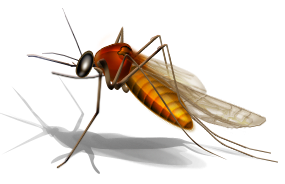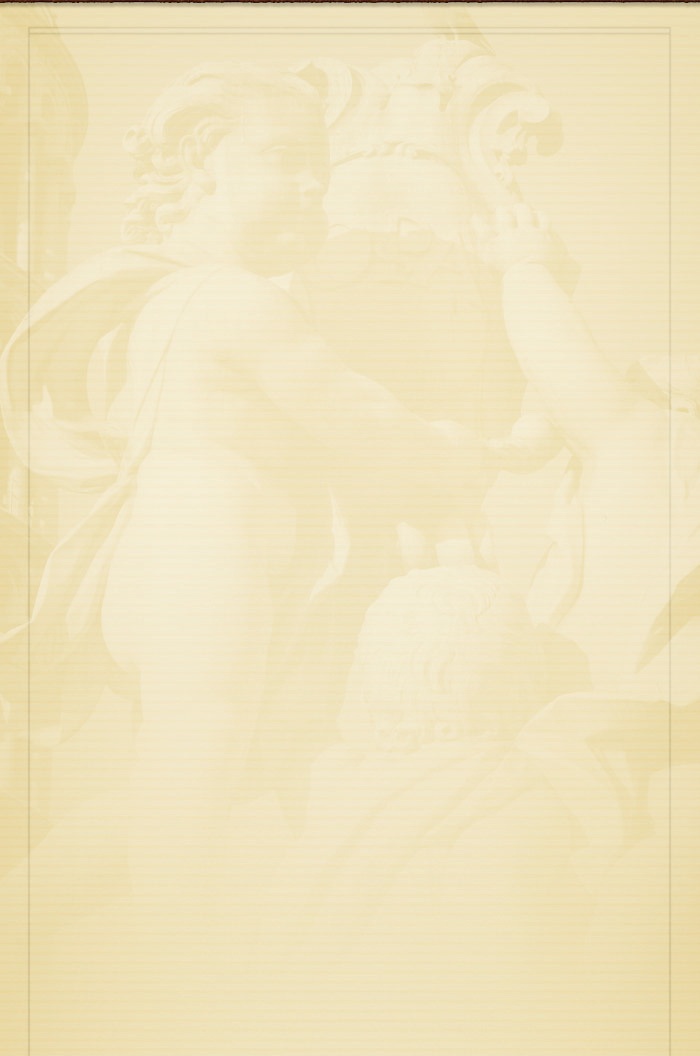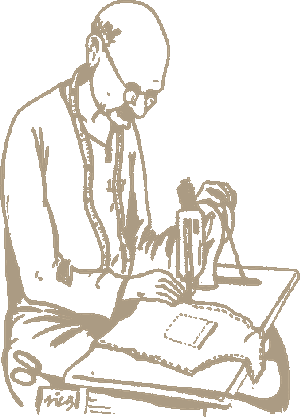Anyhow, and after that, Louie Water, who was our neighbor, he was drafted into the German army. And he lost the bottom part below his knee, he lost his leg in Czechoslovakia, in Prague, they shot him off, about three weeks before the end of the war. So he was at home, and he was doing apprenticeship as a tailor too, in the same, in our town, but with a different boss. After that, when we finished our things our exams with tailoring, Louie said, he didn't even finish his, because he went earlier, he said he was going to go out of the Russian sector over to Austria and going to go somewhere like to America or to Canada or somewhere, and I said to Louie, alright I'm coming to. So I was only sixteen. Louie was eighteen. And by being in the war and losing his leg he was much tougher. So we crossed the border, and went to Austria, and into a camp there. He could have taken <the conditions>, but for me it was a little bit too hard. So after three days, I went back home again, and I continue the tailoring. Because I haven't finished the exams at that time anyhow. I continue that, but Louie, he stayed in Austria, and he would write me a letter, and about twelve months later, Louie said to me, what about packing up now, I've got a job for you here where he was working as a tailor. So, ok, about twelve months later I tried it again, I was seventeen then. And that time, it sort of, I made it. I had to go into a camp first in Fürstenfeld, because there was a lot of refugees going from the eastern part of Europe to the west. And from there they sent us to Feier, it wasn't like a, it was sort of like a camp, but it was a nice building where we were and if you got somebody that would get you a job in Austria, then they would release you, you could go to that place. Anyhow, Louie, he was working, he sent me a pice of paper from where he was working, from his boss, he said he was going to employ me. And I got joined up with Louie, and we were working together in Austria.
And from there, that was out in the country, and from there we went to Graz, that was the city about 200,000 people living there. And so we lived there, we both working there. He was working for a made-to-measure tailoring. I started there too, but I didn't like that bloke, so I looked for another job and I found a place, like a factory, and I started there in the factory. And we were working there, and there was another one, another Steve, that other one, that used to go poaching with me, he joined us in Austria too. And Louie's sister joined us, and we were sort of a group there. And then we were planning where we were going to go. So we went to Kapfenberg, that was the IRO, the International Refugee Organization, they were picking people and distributing them, where you could immigrate somewhere. Either to America, to Canada, to New Zealand, to South Africa, to Sweden, that's about, I think that's about, oh, and to Australia. Yeah. So, I was going to go to Cana..., no I was going to go to America. No, Venezuela, that's right! That Hungarian bloke went to America.

Well, we finally had all the paper… Louie said he was going to Canada because his father was in Canada before. I said, "No, I'm not going to Canada because its too cold." So I said I'm going to go to Australia. Alright, fair enough. So we split up then. Louie and Steve and Louie's sister, they went to Canada, all three of them. And Steve's girlfriend in the meantime came over from Hungary too, and she went to Canada too. So I was the only one that was going to go to Australia. So when they got all my papers ready, and they took us up to Kapfenberg, and there was sort of a, what you say, where they used to, all those refugees come together, they kept them there in barracks, until they got the transport going to the ships. And there was barracks with no windows in. It was in middle of winter, and the straw on the ground, you had to sleep on the straw, no blankets. And I said, alright, well I can sleep for a couple of nights while we're waiting for the transport, I can sleep in a guesthouse, I had a money, where I was working, and from there. Anyhow, after two days when just about ready to go, the authorities came out and said, "The single ones have to be put back for another couple of months until the next transport, because there are married ones, with children and women and we can't keep them in winter in the barracks." And I thought to myself, “Bugger it, I'm not going to stay here in winter and freeze to death!” So I went back to Graz, and I started to work there again where I was, back to the same place. So I worked there for another year. They sent me a paper from the immigration department, "Hey, what's going on? Are you coming, or are you not? You're papers are already in Australia!" I said alright, I'm coming this time, its summer. So I packed up, and then I moved the next few months. I went to Kapfenberg and they took us by train to Aurich, that was in Northern Germany, in a marine, where all the navy officers usually were trained. We were kept in a beautiful place, beautiful sports grounds and everything. And we were there for about four weeks and from there they took us to Delmenhorst, that's where, we were about three or four days, and from there they took us on the boat. On the boat, on the Fair Sea. And from there, we were on the way, to Australia.











